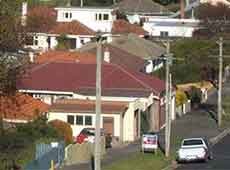Lessons must be learnt from meth report

The report into Housing New Zealand’s response to so-called methamphetamine contamination contains hard lessons for the government and its agencies on how to properly address complex drug issues, and reveals the harms caused by HNZ’s action were more widespread than previously thought.
“We welcome the report, which chronicles the many mistakes Housing NZ and other agencies made in response to fear and hysteria around methamphetamine contamination. This wake-up call should cause the government to shift its wider response to drug problems across all portfolios,” said Ross Bell, Executive Director.
“We are shocked by the massive number of people affected by the previous government’s heartless housing policy. The report estimates that 800 tenancies, or about 2,400 people, were evicted and harmed by Housing NZ’s heavy-handed approach.
“The report shows that ministers, Housing NZ and other government agencies, got stuck in a collective ‘group think’ and ignored many opportunities to reverse this approach and prevent widespread harm. The science was there all along.
Housing NZ must act quickly to identify those people so hugely harmed by its punitive actions.
Ross Bell, Executive Director"We urge them to be generous in the compensation awarded to those tenants. The estimated compensation of $2,500-3,000 is much too low to account for the disruption, destruction of property, and other costs people would have faced after being evicted.”
The report provides significant detail about compensation that has been awarded to date. In one instance, the Tenancy Tribunal awarded $5,000 compensation to the tenant for the loss of the possessions that were disposed of; and $3,000 exemplary damages because of the stress caused to the tenant.
“We do not share the confidence that Housing Minister Phil Twyford is putting in the HNZ board chairperson, Adrienne Young-Cooper. Ms Young-Cooper presided over this mess, with the report clearly showing a failure in leadership by the Board, which resulted in over $100 million wasted and thousands of people in hardship. Ms Young-Cooper’s resignation would demonstrate accountability.
“The government must use the findings of this report to reflect on how it deals with complex drug issues. Politicians may like to look tough with ‘zero tolerance’ policies, but punitive responses will always cause widespread harm and hardship. We cannot let fear and hysteria drive actions that create more harm.
In the report it is acknowledged that “Zero tolerance is one of many policies we have changed in the recent past as we work to change our culture and strive to become a more compassionate organisation”.
“The new approach Housing NZ is taking towards tenants who use drugs is a very positive move. Greater support and compassion being shown by HNZ must be supported by the Ministry of Health and DHBs to ensure people who need help get it straight away.”
Read Phil Twyford's media release: Housing NZ to right meth testing wrong
And here's the Housing NZ report: Methamphetamine Contamination Housing New Zealand's Response - September 2018
Recent news

Beyond the bottle: Paddy, Guyon, and Lotta on life after alcohol
Well-known NZers share what it's like to live without alcohol in a culture that celebrates it at every turn

Funding boost and significant shift needed for health-based approach to drugs
A new paper sets out the Drug Foundation's vision for a health-based approach to drug harm

Expert Pharmac committee recommends funding for overdose reversal nasal spray
The expert committee has said funding for naloxone in the community should be a high priority

